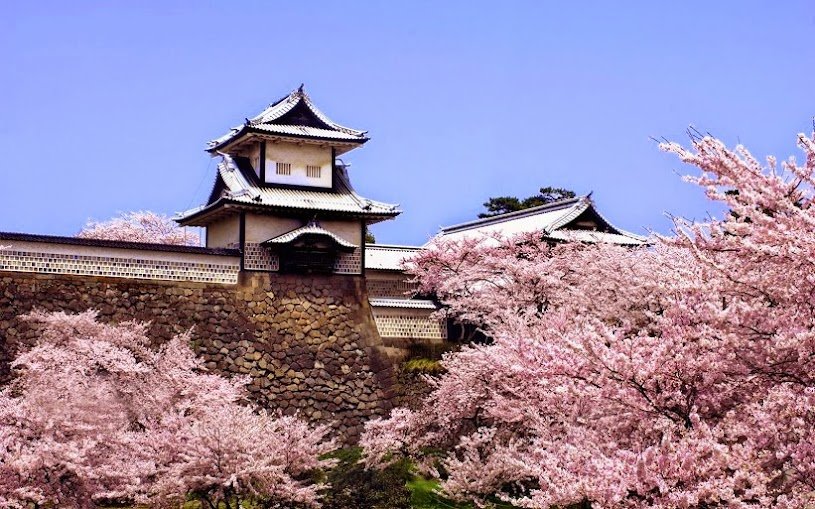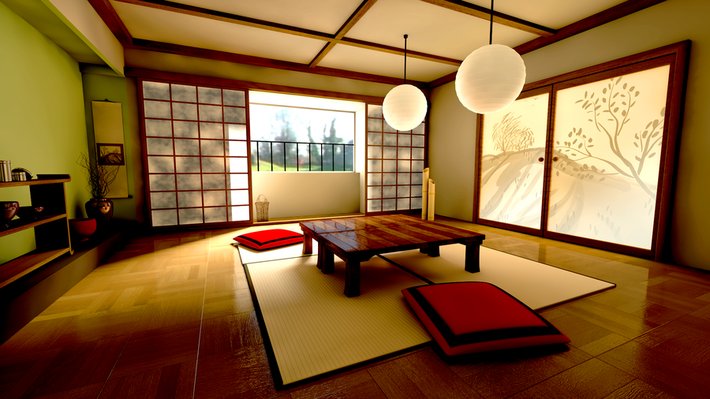Country and people of Japan
(BNP) - Japan is not only famous for its splendid scenery, cherry blossoms filled with spring colors and majestic Mount Fuji, but also the cradle of a unique and diverse culture with friendly and hospitable people. In addition, this place also owns the world’s number one science and technology.

Cherry blossoms, a symbol of Japan. (Source: Internet)
Administrative units
Japan is an arc-shaped island country with a total area of 379,954 km² located along the Pacific coast of East Asia. The country is located in the east of Korea, Russia and China, and it extends from the Sea of Okhotsk in the north toward the East China Sea in the south.
Japan’s five main islands are Hokkaido, Honshu, Kyushu, Shikoku and Okinawa, divided into 8 regions: Tohoku, Kanto, Chubu, Kinki, Chugoku, Shikoku, Kyushu and Hokkaido island. Furthermore, Japan is also known as a part of the Ring of Fire. It currently has 186 active volcanoes and 6,852 islands.
Japan consists of 10 largest cities including Hiroshima, Tokyo, Sapporo, Kyoto, Osaka, Naha, Fukuoka, Nagoya, Nikko and Yokohama. There are 47 prefectures, among which Hokkaido prefecture has an area of more than 83 million m2, the rest are mainly small prefectures and cities, and the smallest of which is Kagawa prefecture with just over 1 million m2.
The capital of Japan is located in the center of the Kanto region. The country’s largest population density is concentrated in large metropolitan such as Tokyo, Nagoya and Osaka.
Japan is also known as “Land of Cherry Blossoms” since the cherry blossoms (sakura) are widely distributed in Japan from the North to the South. The “blooming and withering” petals are loved by the Japanese, reflecting the sensitive, beauty-loving, life and death spirit of their people. This place possesses another nickname which is “Land of the Chrysanthemum” because the 16-pental Chrysanthemum is associated with the sun and symbol of the divine authority of the Emperor as well as the national emblem of the country. “Land of the Rising Sun” is also known for Japan, it is the easternmost country and their ancestor is the Amaterasu (the Goddess of the Sun).
This place is also called “Fusang”. The “Fusang” means the mulberry tree. According to the ancient Eastern legend, there is a hollow mulberry tree called “Fusang” or “K’ung-sang”, where the Sun God rested before riding the solar-boat to travel across the sky from the East to the West, thereby, “Fusang” has a literary meaning to refer to the place where the Sun rises.
Climate and weather
The climate of Japan is predominantly temperate with 4 distinct seasons: spring – summer – autumn – winter but varies greatly from north to south.
The temperature and humidity in Summer (from June to August) are relatively high. In addition, due to the large amounts of rainfall, Japan often suffers from natural disasters such as earthquakes, tsunamis, storms and floods. However, thanks to increasingly developed technology, possible bad disaster situations will be measured and predicted in advance to the people across the country by geological researchers.
Winter lasts from December to February, Japan will be immersed in snow with the temperatures sometimes dropping below – 30 degrees Celsius.
Japan consists of 4 major islands (from North to South) including Hokkaido, Honshu, Shikoku and Kyushu as well as numerous islets. Most of the islands are mountainous and volcanic, typically Mount Fuji - the highest point in Japan.
Hokkaido belongs to the humid continental climate, with long, cold winters and cool summers. The islands usually develop deep snowbanks in the winter. Unlike other islands, the seasonal rain front dissipates before reaching Hokkaido so between June and July, it rarely rains here. Therefore, the landscape has an inherent characteristic beauty and attracts numerous tourists in the summer.
Japanese people
In order to become an economic power, Japan depends on not only correct reform policies but also largely the its people. It is the 10th most populous country in the world with an estimated 128 million people.
Japanese people have extremely special personalities. They are friendly, sensitive to foreign cultures, and eager to learn as well as willing to explore with natural creativity. Japanese people always have a high sense of responsibility, self-awareness, hard work, thrift, loyalty and punctuality. In addition, the Japanese still retain a strong virtue from ancient times which is the spirit of samurai. Thanks to those virtues, the Japanese have built a civilized country, rising from the ashes of war, harsh climate, and poor resources to become a modern power as today.
The Tokyo’s metropolitan area (Tokyo Metropolis and neighboring prefectures) is the most populous in the world with an estimated 30 million residents. Japanese people are very flexible and healthy. They can stand and work all day, even the women. They are still enthusiastic about working when they are 70 to 80 years old because they love to work, not for greedy for money. This is also the reason why Japanese people are called Labor animals in the world.

A typical housing design in Japan. (Source: Internet)
Japanese economy
Japan is among the world’s leading countries in science and technology. Considered as an economic power, it is the third-largest in the world by nominal GDP (Gross domestic product) and also the third-largest by purchasing power parity, after that of the United States and China. It ranks 5th in the world in defense investment. It is the world’s fourth-largest importer and the sixth-largest exporter. Japan is a member of the UN (United Nations), G8, G4 and APEC (Asia-Pacific Economic Cooperation).
Despite its inadequate natural resources, Japan is the leading country in the world in terms of shipbuilding, metalsmithing, arms industry and automobile manufacturing. The fishing and forestry dominate the Japanese economy with annual seafood output of thousands of tons of fish per year in almost prefectures.
JPY (Japanese yen) is the official currency of Japan. According to the exchange rate, 1 JPY equals to 206 VND, 1 Man equals to 10,000 yen (equivalent to about 2 million VND), 1 Sen equals to 1,000 yen (equivalent to about 200,000 VND).
Daily lifestyle of Japanese people
The Japanese lifestyle is extremely organized and meticulous. Compared to European and American private houses, Japanese houses are smaller. Instead of living in private houses, Japanese people choose to live in apartments.
Furniture and home decor show the simple lifestyle. Due to the frequently heavy effect of natural disasters on the country, the people minimize the furniture in the house as much as possible. The simplicity and sophistication still exude the space beauty.
Watches are an indispensable item in the daily life of Japanese people. The attitudes towards time and punctuality hold significant importance. They have long valued discipline, order, and a deep respect for time.
The regulations in society is always put first by the Japanese. For each person’s subconscious, it is deeply ingrained. Promises are highly valued; therefore, do not make promises that cannot keep. For the Japanese, breaking promises is taboo.
Japanese taboos
Japanese culture is special with many unusual customs and rituals. That is the reason why you need to keep in mind the following taboos when coming to Japan:
Do not stick your chopsticks into a bowl of rice, as this is reminiscent of a funeral rite.
Do not pass food from chopsticks to chopsticks, as this is also reminiscent of a funeral rite.
You should never clip your nails at night since it can result in bad luck, evil spirits, or death and loss.
Number 4 is unlucky because it is sometimes pronounced shi, which is the word for death. Therefore, you should not do anything or give gifts to the Japanese that are related to the unlucky number 4.
Eating while walking in Japan should be avoided.
Never whistle at night, this will attract wandering ghosts who will follow you home.
Giving handkerchiefs as presents is unsuitable because it is associated with the Japanese word of “tegire”, meaning the cutting of the hand or severing of relationships.
The Japanese take etiquette very seriously, accepting items with both hands shows politeness and respect for the opposite person in communication.
Tipping is not nearly as common in Japan as it is in many other parts of the world. This means you truly don’t need to and in fact should not even think about tipping at restaurants, bars, or in taxis, for example.
Littering is prohibited in Japan, or else you will be fined.
You should not talk too loudly on the train because it is rude and disrespectful, especially loud speaking in public.






